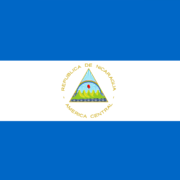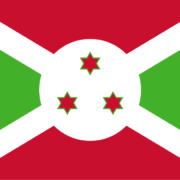Latin America
Venezuela
Venezuela, located at the northern end of South America, centres around Caracas, its primary hub for industry, commerce, education, and tourism.
Latin America
Venezuela, located at the northern end of South America, centres around Caracas, its primary hub for industry, commerce, education, and tourism.
Population: 32 million (CIA World Factbook)
Main Religion:Christianity (predominantly Roman Catholic)
Christians: Roman Catholic 48.1%, Protestant 31.6%
Venezuela, country located at the northern end of South America. The national capital, Caracas, is Venezuela’s primary centre of industry, commerce, education, and tourism. Venezuela administers several Caribbean islands and archipelagos, among which are Margarita Island, La Blanquilla, La Tortuga, Los Roques, and Los Monjes. Since the early 19th century Venezuela has claimed jurisdiction over Guyanese territory west of the Essequibo River totaling some 53,000 square miles (137,000 square km)—nearly two-thirds of the land area of Guyana. Venezuela also has had a long dispute with Colombia over the delimitation of maritime boundaries in the Gulf of Venezuela and around the archipelago of Los Monjes. (Brittanica)
Venezuela has been labelled not free in the Freedom House analyses and scored a low 15/100 on the 2024 index. Venezuela’s democratic institutions have been deteriorating since 1999, but conditions have grown sharply worse in recent years due to harsher government crackdowns on the opposition and the ruling party’s use of thoroughly flawed elections to seize full control of state institutions. The authorities have closed off virtually all channels for political dissent, restricting civil liberties and prosecuting perceived opponents without regard for due process. Although the country’s economy has returned to growth after years of recession, a severe, politically driven humanitarian crisis continues to cause hardship and stimulate mass emigration.
Health care crises, massive food shortages, and hyperinflation have caused millions of Venezuelans to flee the country, desperately seeking survival and opportunity elsewhere (Operation World).
Constitutional guarantees of religious freedom are generally respected, though relations between the government and the Roman Catholic Church remain tense. According to the 2021 edition of the US State Department’s Report on International Religious Freedom, Roman Catholic and evangelical Christian groups alleged government harassment, intimidation, and retaliation against their members, including members of the clergy. The report also noted a pattern of antisemitic content in regime-affiliated media outlets and social media posts.
Further to that, the media operate within a highly restrictive regulatory and legal environment. Venezuela formerly benefited from vibrant newspaper, television, and radio sectors, but many outlets have been forced to close or narrow their operations. Independent journalists are at risk of government pressure, arbitrary arrest, and physical violence. Nongovernmental organization (NGO) Public Space (Espacio Público) documented nearly 300 violations of freedom of expression, including censorship and intimidation, during the first nine months of 2023.
The freedom of personal expression is severely constrained in Venezuela, due in part to the deterrent effect of extensive government surveillance. In 2022, the Spanish telecommunications firm Movistar, which operates in Venezuela, reported that Maduro’s government had made more than 860,000 requests for telephone interceptions during 2021, affecting over 1.5 million phone numbers. The government has also used social service and health care systems to surveil Venezuelans; the Fatherland Card, an electronic identification document, is used both to distribute social aid and influence citizens’ online activity. (Freedom House)

 Burundi
Burundi